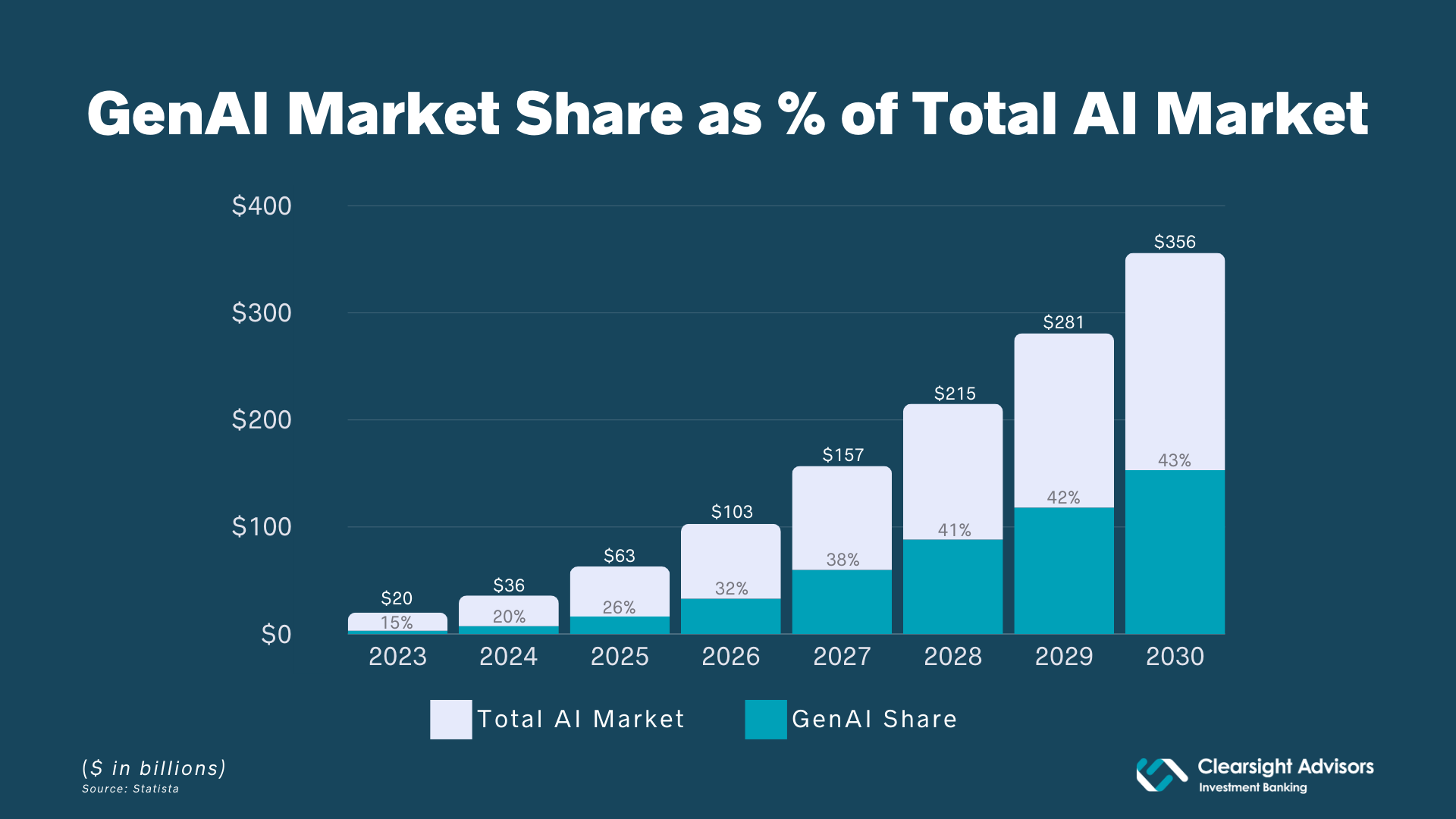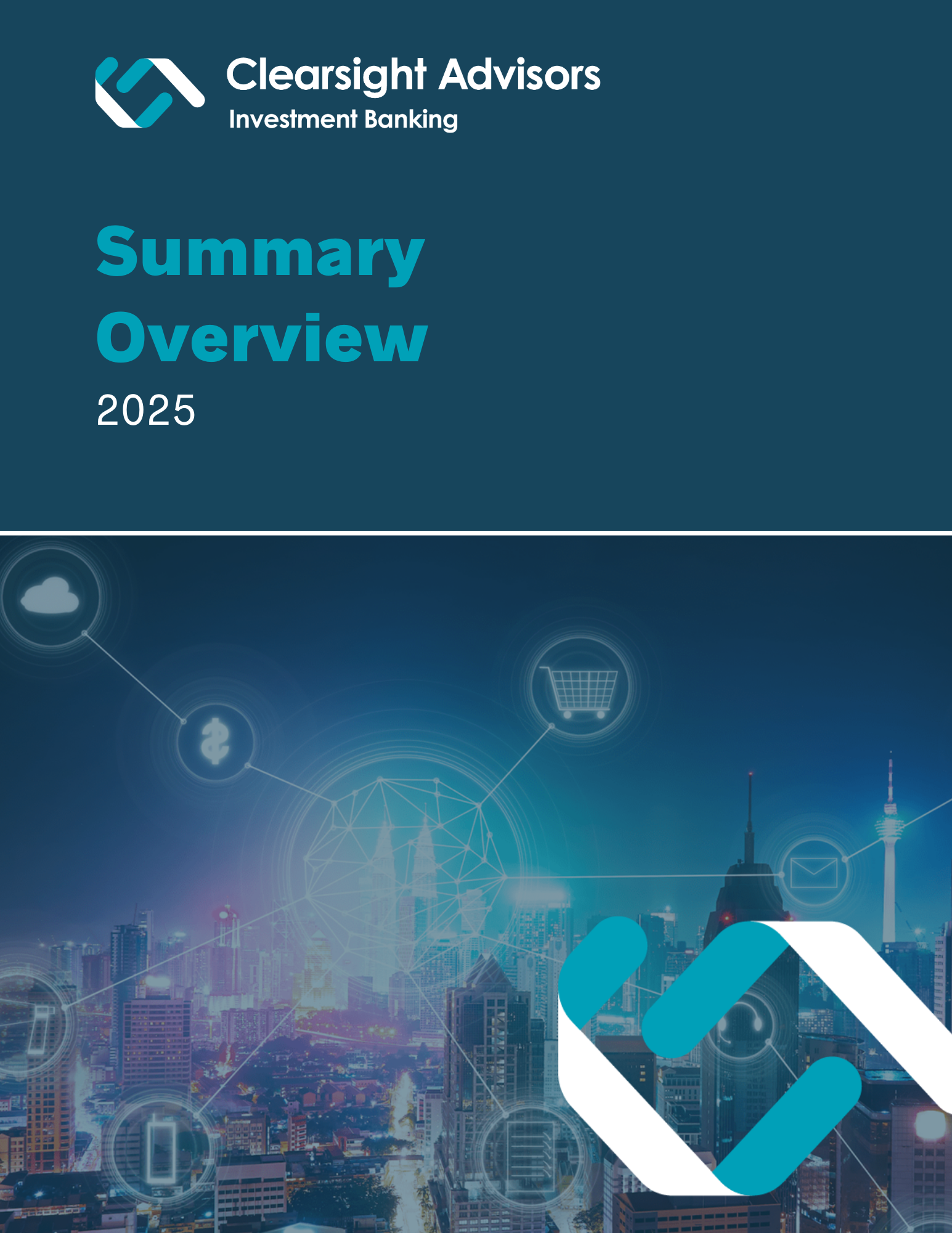Generative AI in Market Research: Insights from Quirk’s London
The Clearsight team recently attended the sold-out Quirk’s London conference, which featured insights from corporate and brand researchers, along with their vendor partners. These market research companies and their solutions providers operate in a $130+ billion global industry. Amidst the overall positive atmosphere, both corporates and brands noted green shoots emerging and increasing opportunities to leverage technology. A few key themes emerged from our discussions with executives at the conference, dominated by the topic of artificial intelligence (AI).
Generative AI (GenAI) and its applications to the market research industry represent both a massive opportunity and a significant threat. This technology is a probabilistic model of the connections between elements within massive collections of similar data. GenAI is a dynamic area within market research and is increasingly being utilized to improve workflows and surface deep insights, in both quantitative and qualitative research. Today, GenAI can find and screen target audiences, calculate sample sizes, customize surveys based on specific use cases, and create reporting, analysis, and summarizations. At present, GenAI helps brands identify and act on budding cultural trends and societal forces influencing consumers. Emerging and future GenAI applications include in-survey conversations, the ability to develop respondent stories, automated data cleansing coding, and eye-tracking.
On the other side, the recent proliferation of GenAI, combined with hackers’ ability to easily hide proxy entry points with “verified” devices, has also led to rapidly increasing data quality issues. Fraudsters have established sophisticated operations to complete surveys for incentive gift cards, which can create a substantial reward in countries with very low monthly wages. Kantar estimates that nearly 70% of fraud in market research is from “professional” operations. Brands are being forced to remove as much as 40% of data post-field due to bad traffic. Over the past four years, there has been a 780x increase to over 15 million surveys completed by international hackers. To address these challenges, several market research industry associations and trade groups have formed the Global Data Quality Initiative, aimed at creating a culture of trust and accountability to fight fraud by leveraging technology, collaboration, and regional nuances.

So where do we go from here? GenAI has already impacted the market research industry, and that impact will accelerate over the next few years as the technology improves, creating further use cases. Data quality issues will remain a thorn in the side in the near-term, but the industry is trying to proactively address this challenge through partnerships and collaboration. Considering quantitative data issues, some brands have begun to shift their research mix to more qualitative methodologies featuring “real” respondents. Native AI/GenAI market research companies seem to be having a ‘moment-in-the-sun.’ Recent advancements and GenAI capabilities give qualitative and quantitative providers the ability to scale, digest, and analyze vast amounts of structured and unstructured data, video, and text at unprecedented levels of depth and breadth. Overall, Clearsight remains excited about the industry prospects to leverage GenAI to drive deeper, more robust insights and workflow efficiencies. Current market trends are setting the stage for the next generation of M&A for GenAI-native platforms and solutions.
Contact Stephen

Managing Director, Clearsight Advisors
New York, NY
sshankman@clearsightadvisors.com
Sources: Statista, Kantar
Share
